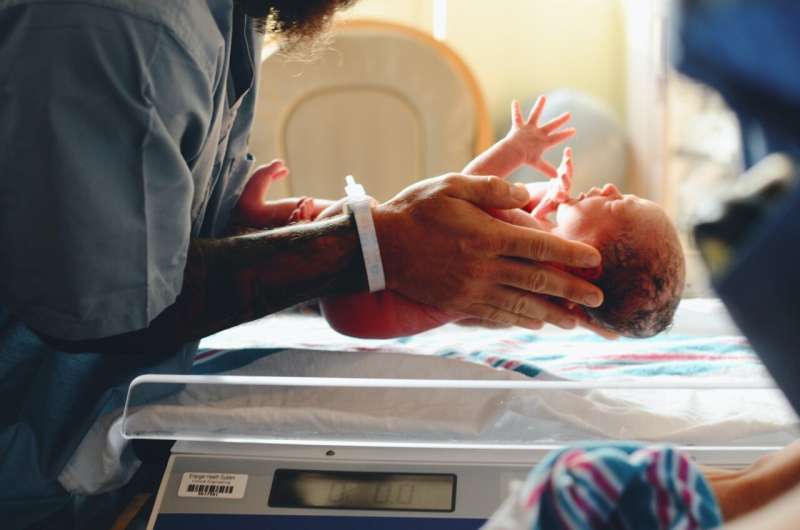
Researchers at Boston Medical Center (BMC) have published findings in JAMA Pediatrics that show the hospital’s revised clinical guidelines for reporting substance-exposed newborns support family health.
In May 2021, BMC revised its clinical guidelines to report suspected abuse after a child is born when there are tangible concerns about the parent’s ability to safely care for the child, rather than automatically filing Child Protective Services (CPS) reports for all cases of prescribed use of opioids or medication for opioid use disorder. This clinical guideline shift reduced reporting to CPS by 45%, eliminating reporting in the absence of child safety concerns.
Study authors contend that automatic mandatory reporting stigmatizes evidence-based care for substance use disorders (SUDs) and contributes to unnecessary family surveillance and inefficient use of limited CPS resources.
Currently, mandatory reporting laws in Massachusetts do not differentiate between birthing patients engaged in treatment and taking medication for opioid use disorder and those who are not managing their SUD, leaving some parents to opt out of treatment. BMC advocates for all birthing patients to be treated with compassion and, for those managing addiction, to partner with their provider on care plans.
Massachusetts is currently considering legislation that would amend existing CPS reporting mandates.
“Mandatory reporting forces pediatricians to unfairly assume abuse or neglect before a baby is even born,” said lead author Rohan Khazanchi, MD, MPH, a BMC resident physician in internal medicine and pediatrics and research affiliate at Harvard University’s FXB Center for Health & Human Rights.
“Our study shows that BMC’s clinical guidance approach is making a difference for hundreds of families who overcame tremendous barriers throughout their recovery journeys.”
Researchers will continue to study the long-term outcomes of eliminating unsubstantiated neglect reporting on the health of children and their families.
In the current study, authors compared outcomes at BMC with 16 other Massachusetts-based birthing hospitals that report data to the Perinatal-Neonatal Quality Improvement Network of Massachusetts (PNQINMA). Their analysis of 3,658 parent-infant dyads from January 2017 to May 2023 focused on three short-term measures: CPS reporting prior to discharge; discharge to a biological parent’s custody; and hospital length of stay. Results were promising across all measures.
“BMC continued to provide the highest levels of care and protection for newborns while also taking into consideration the potential negative side effects of mandatory reporting for recovering parents,” said senior author Heather Hsu, MD, a BMC pediatric hospitalist and Assistant Professor of Pediatrics at Boston University Chobanian & Avedisian School of Medicine.
“BMC is committed to supporting families in their recovery journey and providing them with the tools they need to be successful, while removing additional stressors and stigmas. The hospital’s revised guidelines help us facilitate a healthier environment for both parent and child.”
More information:
Rohan Khazanchi et al, Mandatory Child Protective Services Reporting for Substance-Exposed Newborns and Peripartum Outcomes, JAMA Pediatrics (2024). DOI: 10.1001/jamapediatrics.2024.0903
Citation:
Revised clinical guidelines on mandatory reporting of substance-exposed newborns show promise (2024, May 8)
clinical-guidelines-mandatory-substance-exposed.html
.
. The content is provided for information purposes only.
